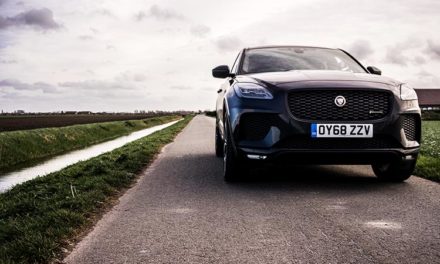According to the latest statistics, 88% of vehicles have a hidden history. Therefore, whether you are buying or selling a used car, a vehicle history report is a tool that must come in handy to guide you towards the best decision.
A Vehicle history report provides first-hand evidence about the car health you are interested in buying. as to the nature of the car in question if it is healthy or not.
In this article, we will be discussing the importance of a vehicle history report to a buyer and seller and how beneficial the Vehicle History Report (VHR) is to the buyer and the seller.
1. It increases the trust score of Dealerships
As a used car seller, when you provide your potential buyers with a copy of the history of any used car they are interested in buying, it increases the trust they will have in your business and the durability of the vehicles you sell.
They will know that for a fact you have their best interest at heart and that you are doing your very best to provide them with a vehicle history report, which provides an irrefutable proof of the soundness of the car(s) they desire to buy
This will make them trust you, and in the long run, they will refer many other buyers to your dealership because to them your brand is tested and trusted.
A 2016 survey reports about 69% that consumers experience buyer’s remorse after buying a vehicle from a dealership. Doing the math reveals fewer than one-third of the buyers are happy with the choice they made. The most common reason for remorse and disappointment was that cars had unexpected mechanical issues which point to the inadequacy of dealerships in providing information about the car’s health and condition.
Therefore, to build trust, create transparency, and ensure customer satisfaction it is imperative for dealers to provide vehicle history data to the buyers so they will make an informed decision and will also keep coming back to you.
Dealers can get premium vehicle history reports at lower prices or opt for subscription plans for additional savings and provide their customers with vehicle history reports to close the deal better and faster and secure 100% customer satisfaction.
2. It ensures that dealerships sell only healthy cars
If as a car dealer you run a VIN check on every used vehicle that enters your inventory, then no doubt you will surely take care that no poorly damaged vehicle with a hidden history or past auction sale is entering your inventory.
When a dealer runs a background check on his cars, he preserves the integrity of his brand; such practice will go a long way to ensure that only healthy cars will be showcased, no stolen vehicles will be in the showroom, nor vehicles with fake mileage will be displayed to the vehicle buyers and shoppers..
If you are a dealer looking to help your customers to build solid trust in your brand, simply get vehicle history report API integrated with your site, and then the sky will not be your limit, but your starting point.
3. Detecting fake mileage traps
Odometer fraud has been on the increase in recent times. In order to sell used cars, some people resort to rolling back the odometer or the mileage.
Just so you know, on the dashboard of every vehicle, there is a meter displaying the total distance traveled by the vehicle in the course of its lifespan.
This is known as the odometer reading or the mileage. When the actual reading is altered, it is then referred to as “mileage reversal”, or “mile busting.”
The mileage helps car buyers to know if a used vehicle was overused or underused. Some used cars in showrooms have their odometer reversed to a buyer-friendly mileage.
A vehicle history report is the only source of evidence that can show you the true mileage of any used vehicle.
4. Preventing purchase of accident cars
A vehicle history report reveals how damaged a car was if it was involved in an accident. it answers questions such as, “was the airbag blown?”, “what was the degree of damage?” or “Which part(s) of the vehicle was damaged?”
No dealership showcases a car with a damaged body. Dealers tend to refurbish even an extremely damaged vehicle for resale.
If you get trapped in the dungeon of used cars, you will become financially incapacitated in the long run, this is because you will have to spend a lot on repairs and maintenance of a weak, sick dying vehicle.
Therefore, spare yourself the grief and get yourself a good vehicle history report. Do not make the mistake of going to the dealer first, instead, get the vehicle identification number (VIN) of your prospective car, with the VIN you can access the vehicle history report of every used vehicle in your dealer’s showroom.
If you insist on going to the dealer first, then be sure that a good salesman will surely convince you to buy a rebuilt or problematic car, without ever mentioning to you that it was involved in an accident.
5. Service History and Records
A vehicle history report also shows the service history and records of any vehicle. This is very useful because you want to know if the vehicle was properly serviced and maintained.
Buying a used car without a service history and records is a bad idea because you won’t know whether the car has been properly maintained, and your car will be less desirable, so could be worthless, when you sell it.
The service history of a car consists of any maintenance work done on a vehicle, regardless of the frequency, difficulty, or cost. Perhaps the most common maintenance performed on a vehicle is to regularly change the oil. Other typically quick and common forms of maintenance are the replacement of cabin and engine air filters, windshield wipers, and batteries. These are all typically quick, easy ways to maintain a vehicle.















